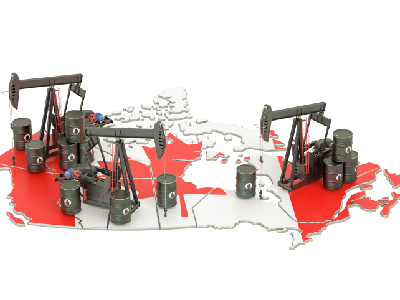Enhancing operational efficiency and productivity in the oil sector through effective management, maintenance, and training.
Course Overview
The oil sector is one of the most vital and influential sectors in the economy, necessitating the application of best practices in production management, maintenance, and public services to ensure the highest levels of operational efficiency. This training program aims to equip employees in the fields of production, maintenance, public services, training and development, and procurement with the fundamental knowledge and skills to enhance performance and improve the sustainability of operations. It also focuses on the role of training in empowering the workforce and boosting productivity, as well as the importance of integrating public services in improving the work environment. The program combines management methodologies with modern technologies to ensure the continuity of operational processes and achieve the strategic goals of the organization.
Course Objectives
- Understanding the Principles of Production Management and Their Impact on Improving Operational Efficiency in the Oil Sector.
- Applying Advanced Strategies in Preventive and Predictive Maintenance to Minimize Failures.
- Utilizing Training and Development Programs to Enhance Employee Skills and Achieve Optimal Performance.
- Recognizing the Vital Role of Public Services in Supporting Operational Processes and Improving the Work Environment.
- Implementing Smart Procurement Strategies to Ensure Efficient Supply Chains and Cost Savings.
- Developing Integrated Strategies Between Production, Maintenance, Training, and Public Services to Enhance Competitiveness.
Target Audience
- Executive and Operations Managers.
- Mechanical and Electrical Maintenance Engineers and Technicians.
- Training and Organizational Development Managers.
- Public Services Managers and Occupational Health and Safety Officers.
- Procurement and Supply Chain Specialists.
- Consultants and Experts Working on Improving Operational Efficiency in the Oil Sector.
Course Modules
Production management in the oil sector and improving operational efficiency
- Fundamentals and principles of production management in the oil sector.
- Effective production planning according to quality and safety standards.
- Improve production processes and reduce waste and costs.
- Production performance indicators and methods for measuring operational efficiency.
- Digital transformation and its role in improving oil production efficiency.
Maintenance strategies to ensure the sustainability of oil equipment
- The importance of preventive and predictive maintenance in the oil sector.
- Modern maintenance techniques and their role in reducing breakdowns and increasing productivity.
- Improving oil asset and facility management strategies.
- Assess risks associated with maintenance and ensure compliance with safety standards.
- The role of artificial intelligence and the Internet of Things (IoT) in improving maintenance operations
Training and development as a tool to improve human resources efficiency
- Analysis of training needs of personnel working in the oil sector.
- Develop sustainable training programs according to market and industry requirements.
- Applying the latest training techniques and methods (blended learning, e-training, virtual reality).
- Measuring the impact of training on performance and achievement of institutional goals.
- Building a culture of continuous learning and professional development in the workplace
The role of public services in improving the work environment and enhancing operational efficiency
- The concept of public services and its impact on productivity in oil work environments.
- Public Services Management Strategies for Promoting a Supportive Work Environment.
- Improving occupational health and safety standards in the oil sector.
- Impact of logistics and infrastructure on operational processes.
- Sustainability in public services and achieving operational efficiency.
Procurement and Supply Chain Management in the Oil Sector
- Smart purchasing strategies to achieve financial savings and ensure quality.
- Manage contracts and suppliers to ensure continuity of operations.
- The role of data analytics and artificial intelligence in improving supply chains.
- Logistics challenges in the oil sector and the best innovative solutions.
- Promoting sustainability in supply chains and reducing environmental impact.
Integrating production, maintenance, training, general services, and procurement to achieve operational excellence.
- The importance of coordination between different departments to ensure smooth and sustainable operations.
- Building integrated work teams to improve productivity and reduce operational errors.
- The role of big data and analytics in improving operational decision-making.
- Strategies for continuous improvement and promoting a culture of innovation in the oil sector.
- Case studies of successful oil companies that have effectively implemented integration strategies.
Instructor
Name: Ahmed Al-Taweel
Specialization: Administrative development
Certificates: PhD
Core Programs Trained:
Bio:
- Languages: Arabic
- Program Levels: Operational Level
- Venue: Company Headquarters
- Hours: 20
- Location:



.jpg)







